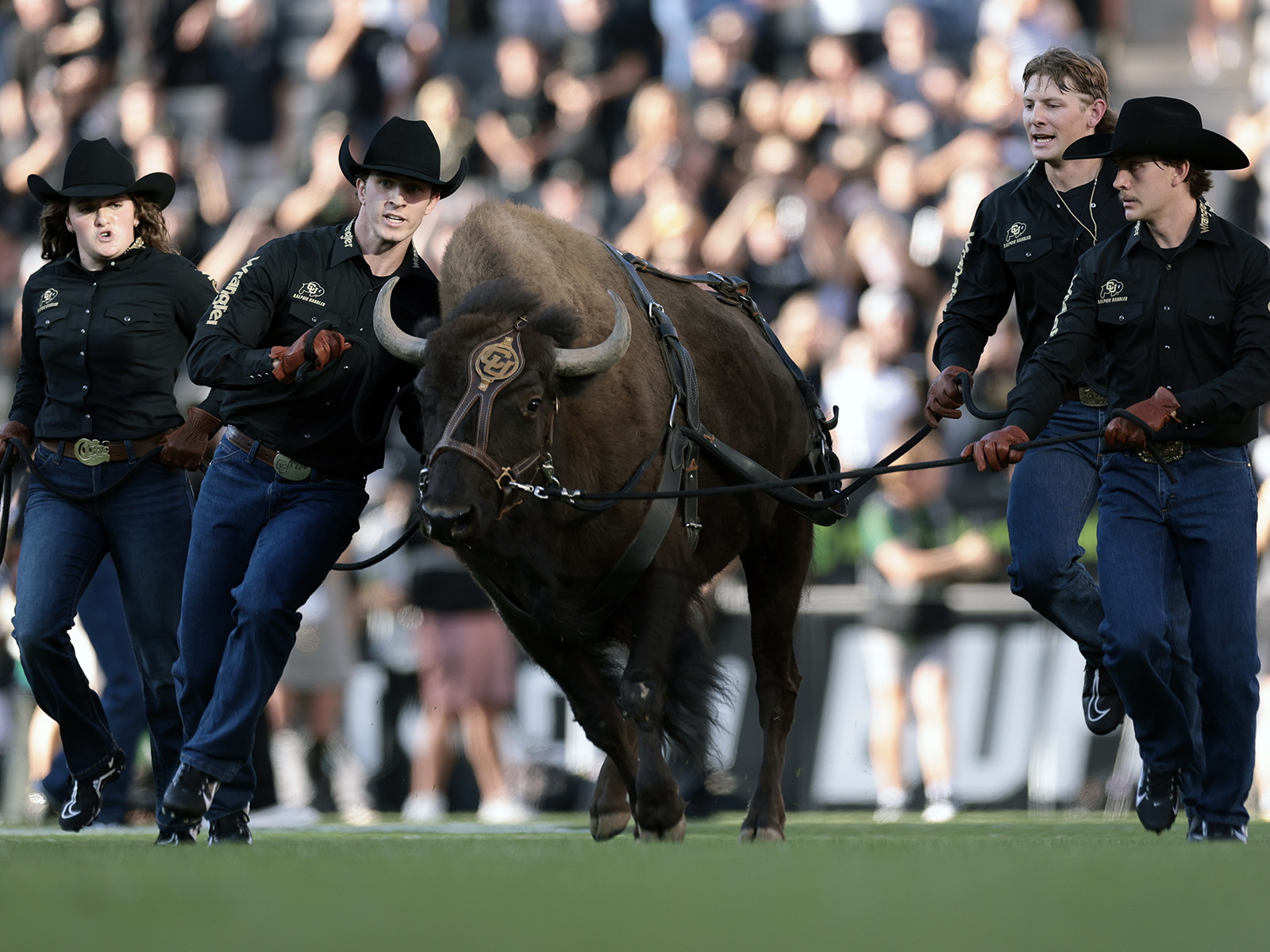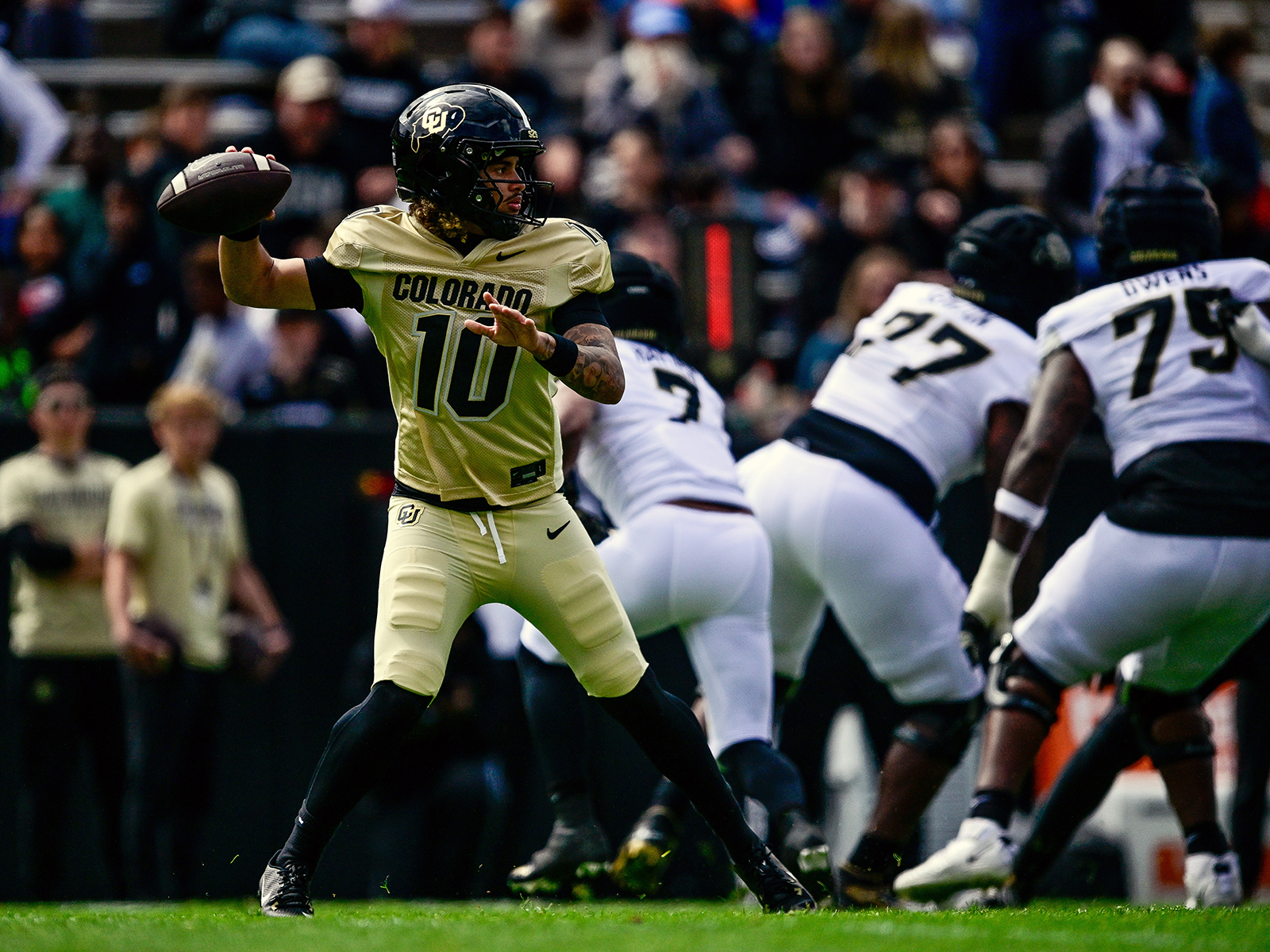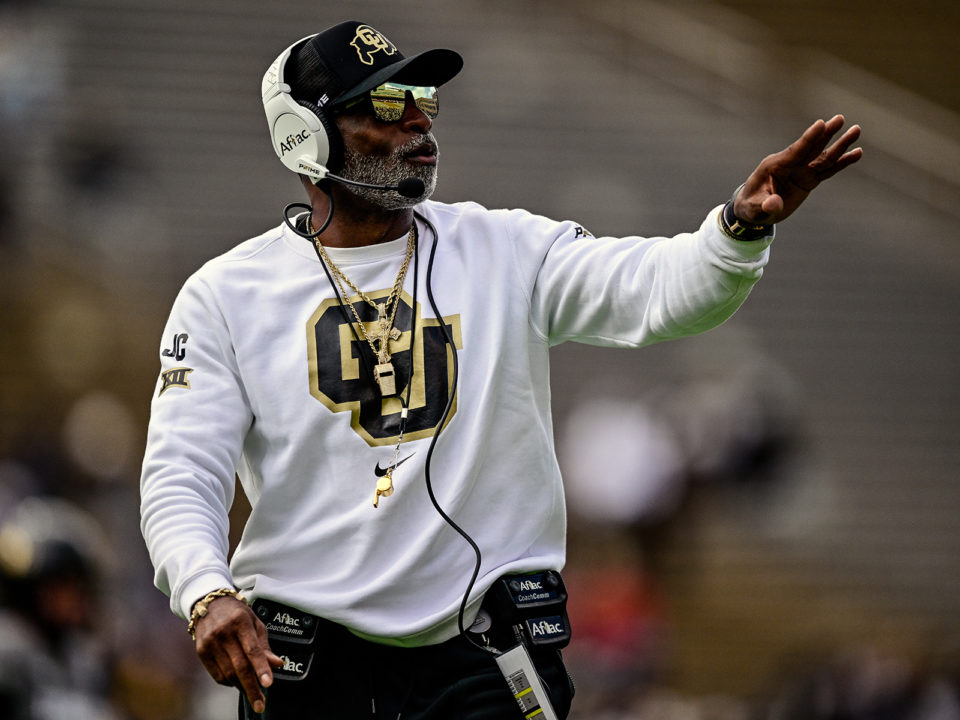The Local newsletter is your free, daily guide to life in Colorado. For locals, by locals.
Deion Sanders is hardly known for his patience.
When the University of Colorado head coach learned this summer that he had bladder cancer, his decision came quickly and was entirely in character. Faced with either ongoing treatment or a full removal of his cancerous bladder, Coach Prime took the most expeditious route. “I didn’t want to be going, weekly, to the hospital when I know I’ve got practices,” Sanders said in late July. “The decision I chose was based not just on family—it was based on football.”
The moment offered a rare window into how Prime operates and why CU’s football program is where it is today. Sanders doesn’t dwell, and he’s definitely not one to prolong a decision. He fixes the problem and he moves on.
This season, the Buffaloes ride their coach’s tempo into one of college football’s most intriguing storylines.
Yes, CU dropped the Alamo Bowl to Brigham Young University this past December and saw its 9-4 regular season—its best in nearly a decade—end in disappointment. But the Buffs are nowhere near the 1-11 disaster Prime inherited in 2022. Sanders reshaped his roster with unrelenting speed and remade his staff around his own vision. He cut players he didn’t think fit the program’s new culture, he swapped assistants who didn’t align with his approach, and he led with a conviction that earned critics—but on-field success, too.
The question this year is whether that momentum can last. Gone are two of the program’s biggest stars: quarterback Shedeur Sanders—Coach Prime’s son—and Heisman Trophy winner Travis Hunter. Together, the pair accumulated nearly 5,500 yards of total offense and created endless highlight reels. Their departures leave two outsize holes in Sanders’ system and a whole lot of intrigue about what comes next in Boulder.
Still, for all the top-end talent that moved to the NFL, this might be Coach Prime’s most well-balanced roster. Senior Kaidon Salter, a quarterback, helped lead Liberty University to a Fiesta Bowl berth two seasons ago and brings loads of experience. Five-star freshman QB Julian Lewis offers enormous upside and could push for snaps. Six-foot-5, 330-pound Jordan Seaton quickly became one of the nation’s best young tackles last season and anchors the Buffs’ offensive line in 2025. Defensively, coordinator Robert Livingston returns a group that slashed the team’s points allowed by nearly 12 per game. A big reason for that success came from cornerbacks Preston Hodge and D.J. McKinney—along with defensive ends D’Arden Walker and Keaten Wade—who will assume even bigger roles this season.
So what should we expect in Sanders’ third year? Colorado enters the season with just three ranked opponents on its schedule—Arizona State, Kansas State, and Iowa State—but life in a 16-team Big 12 offers no guarantees. BYU and TCU are just outside the top 25. Houston and West Virginia loom as potential spoilers. Outside conference play, the August 30 season opener against Georgia Tech will be a tough, early challenge.
If Sanders can guide this retooled squad to another bowl game—and perhaps contend for the Big 12 title—he’ll start hearing his name tossed into head-coaching rumors elsewhere. Even if Colorado comes up short, Coach Prime’s done what few thought was realistically possible in Boulder. Regardless of the outcome, don’t expect Sanders to hesitate. He made a life-changing decision this summer with the same unsentimental urgency that helped him rebuild this Buffaloes program. That outlook is why Colorado is winning again. It’s also why no one in college football dare look away.
5280 Record Prediction: 7-5
Can’t-Miss Matchup

vs. Arizona State, November 22: Few teams pulled a surprise last season like Arizona State. Picked to finish last in the Big 12, the Sun Devils won the conference title and nearly made the College Football Playoff semifinals. Arizona State is led by third-year head coach Kenny Dillingham and returns lots of offensive firepower that includes quarterback Sam Leavitt and wide receiver Jordyn Tyson. Tyson, notably, began his college career in Boulder back in 2022 and was part of Coach Prime’s controversial roster purge. For Colorado, things couldn’t be clearer: Want to win a Big 12 title and make a case for a CFP spot? Win this matchup.
Find the Buffs’ schedule here.
3 Players to Watch

Jordan Seaton, offensive line: Regardless of Travis Hunter’s two-way brilliance, few CU players were more intriguing last season than Seaton. The Washington, D.C., native was the first true freshman in Buffs’ history to start a season opener at tackle. Seaton held his own and protected star quarterback Shedeur Sanders with poise that belied his age. At season’s end, Seaton allowed only three sacks on 612 pass-blocking snaps. He’s now the cornerstone for CU’s offensive line and will be a litmus test for the team’s success this year.
D.J. McKinney, cornerback: This Oklahoma State transfer was a revelation for the Buffs in 2024. McKinney led all Colorado defensive players with 840 snaps played and was behind only the all-everything Hunter for team highs in interceptions (two) and pass break-ups (nine). With Hunter no longer giving opposing quarterbacks nightmares on defense, McKinney likely will draw the toughest wide-receiver assignments.
Julian Lewis, quarterback: While Kaidon Salter could open the season as Colorado’s starter, there’s no question Lewis represents the program’s future. At 6-foot-1, the young QB is hardly imposing, but he checks every other box and has the buzz to snag the starting job. The Georgia native was ranked No. 12 overall in ESPN’s 2025 class and racked up more than 11,000 passing yards during his high school career. Even if Salter becomes a steady option in Boulder, Lewis could make for a smooth post-Shedeur transition at the position.
Read More:








